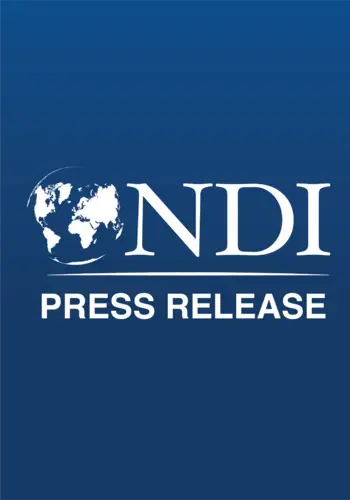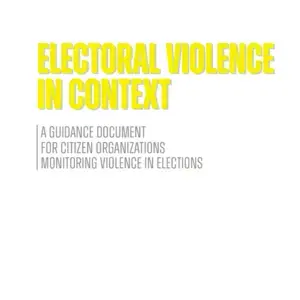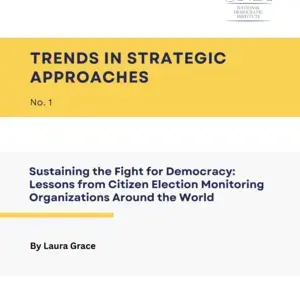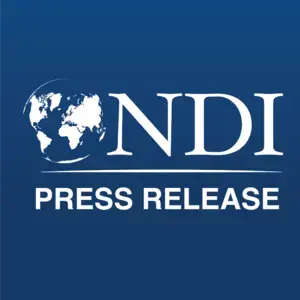AMMAN, Jordan – An international observation delegation fielded by the National Democratic Institute (NDI) said yesterday’s Jordanian parliamentary elections saw a marked improvement in procedures and administration from past polls. But it also found election day shortcomings and irregularities, as well as a number of systemic distortions.
The delegation, which included 50 observers from 29 countries, announced its findings at a news conference here today. Leading the mission were Jorge Quiroga, former president of Bolivia; Attahiru Jega, chairman of the Nigerian Independent National Electoral Commission; Elizabeth Weir, former member of the New Brunswick, Canada, legislative assembly and former leader of the New Democratic Party in New Brunswick; and Leslie Campbell, NDI regional director for the Middle East and North Africa.
The improvements “should give competitors and voters in this and future electoral contests more confidence that their votes are counted fairly and their choices reflected through the election system,” the delegation said.
One of the chief improvements was the creation of an Independent Election Commission (IEC) that instituted significant improvements in the process. These included pre-printed, standardized ballots, a first for Jordan; assigning voters to specific polling stations; improving procedures for processing voters; enhancing counting procedures; posting results at individual polling stations; and instituting new procedures for challenging results.
On election day, NDI observers found voting materials present at most locations and noted that most polling places were set up properly and opened within minutes of the scheduled time. Polling station staff appeared to be well trained and, for the most part, executed their duties competently and professionally.
But the delegation also cited a number of shortcomings in the process. “The unequal size of districts and an electoral system that amplifies family, tribal and national cleavages limit the development of a truly national legislative body and challenge King Abdullah’s stated aim of encouraging ‘full parliamentary government,’” the mission said.
The elections are a series of profoundly local contests where candidates are elected as service providers and representatives of parochial interests, rather than national legislators able to hold the executive branch to account or propose laws, according to the report.
“If King Abdullah is to give concrete expression to his promise to involve the parliament in the naming of the prime minister and the formation of government, he will also have to work to unite individuals and groups in pursuit of national policies and agendas and encourage the formation of like-minded coalitions,” the delegation said.
As part of its report, the mission put forward a number of recommendations that it said could enhance the integrity of future elections and build citizen confidence. These included:
- Strengthening the electoral framework. NDI’s delegation encountered a near consensus on the need to review the election law and system to encourage political competition and the formation of coalitions and political parties;
- Clarifying the process of government formation. To achieve King Abdullah’s vision of parliamentary government, clarification — and, ultimately, a legal framework — for government formation should be provided;
- Establishing a dedicated staff for the IEC. The development of a professional, permanent cadre of election workers and appointing commissioners for mandates that extend beyond the election cycle would further ensure the independence of the IEC;
- Reviewing and enforcing rules for election day campaigning;
- Empowering the IEC and other election officials to address violations in polling centers, including instances of public voting;
- Encouraging parties and candidates to provide better training and clarify the roles of candidate representatives;
- Encouraging the participation of women in the electoral process, including as election officials;
- Instituting financial disclosure requirements to help prevent voter fraud and limit the influence of political money;
- Conducting extensive voter and civic education; and
- Consideration to expanding the franchise, including reducing the minimum age for candidates to encourage more youth participation.
The NDI mission drew on the findings of a pre-election assessment mission completed by the Institute in November, as well as the analysis of NDI long-term observers who have been in the country since Dec. 15.
Read the full preliminary statement»




